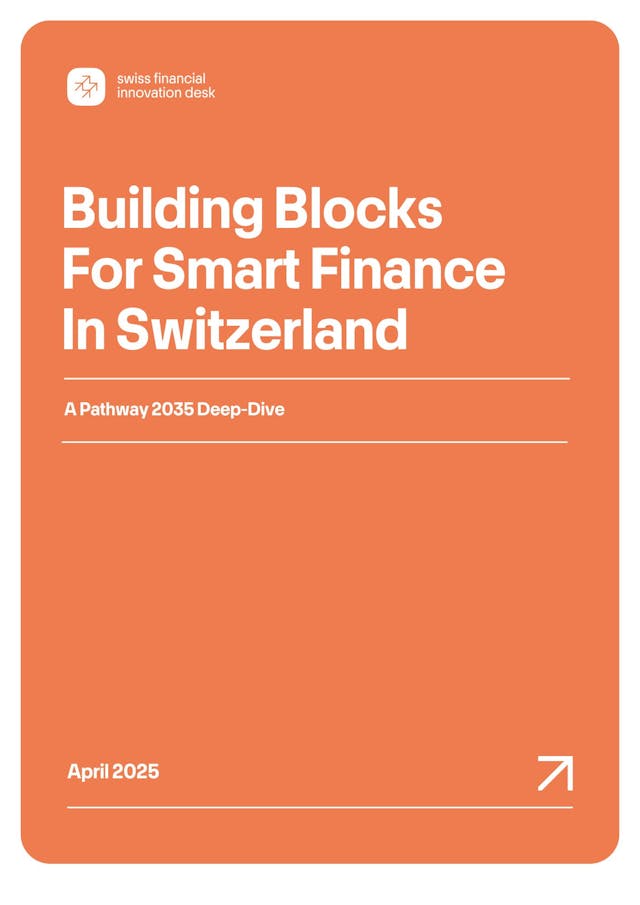The financial ecosystem is undergoing a fundamental transformation – one that extends well beyond individual trends or technologies. At the centre of this shift lies the convergence of three powerful forces: the exponential growth of data, the increasing demand for interoperability and the transformative potential of artificial intelligence (AI).
While terms like open banking, embedded finance or open data offer glimpses into this evolution, they often remain confined to specific use cases or technical domains. What is still missing is a truly integrated approach that addresses the strategic question at stake:
How can financial systems be reconfigured to make meaningful, large-scale use of data?
Our latest paper, Building Blocks for Smart Finance in Switzerland, offers a response and basis for further discussion. It introduces the concept of Smart Finance – a next-generation financial paradigm where intelligent, data-driven infrastructures enable financial services that are adaptive, user-centric and seamlessly interconnected.
At the core of this vision is the development of robust data infrastructure. This includes secure data environments, standardized application programming interfaces (APIs) and interoperable systems that enable the smooth exchange of data – not just across financial sectors, but across domains of daily life. These infrastructures provide the technical foundation for a more responsive and innovation-ready financial system.
But infrastructure alone is not enough. The paper highlights the need for a coherent and forward-looking data governance strategy – one that ensures trust, accountability and digital self-determination, while supporting innovation. As data becomes an increasingly strategic resource, the ability to govern it responsibly will be a key driver of national competitiveness.
Against this backdrop, the paper explores a critical question for Switzerland:
How can the country build a smart finance infrastructure that supports innovation – without compromising its market-driven approach?
To answer this, the paper examines global strategies for open finance and smart data use, analyses the current opportunities and gaps in Switzerland’s financial ecosystem, integrates insights from a multi-stakeholder workshop led by FIND and proposes a modular, context-sensitive data strategy.
The proposed framework is built around six strategic pillars: targeted regulation, public-private governance, international alignment, data security and digital self-determination, innovation acceleration, and awareness and engagement.
To bring this vision to life, the paper also outlines six concrete, short-term actions – from building shared AML data infrastructure, to launching a digital sandbox and innovation challenges.
We invite you to explore this blueprint and contribute to the dialogue on how Switzerland can shape the future of finance through data.
The publication is available for download below.
The publication is a Pathway 2035 Deep Dive: Pathway 2035 for Financial Innovation – Your navigator.
For any questions regarding the publication, please contact Eva Selamlar, Head of FIND: info@find.swiss.
